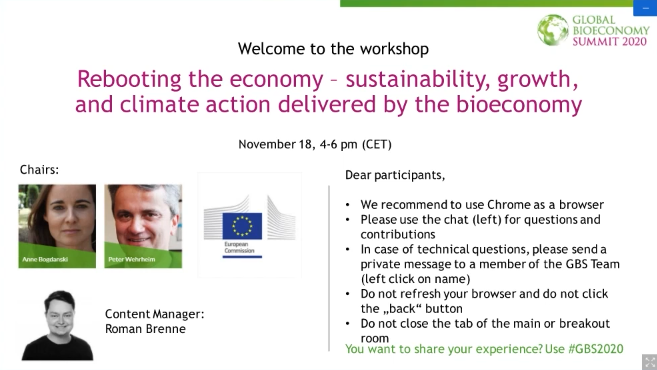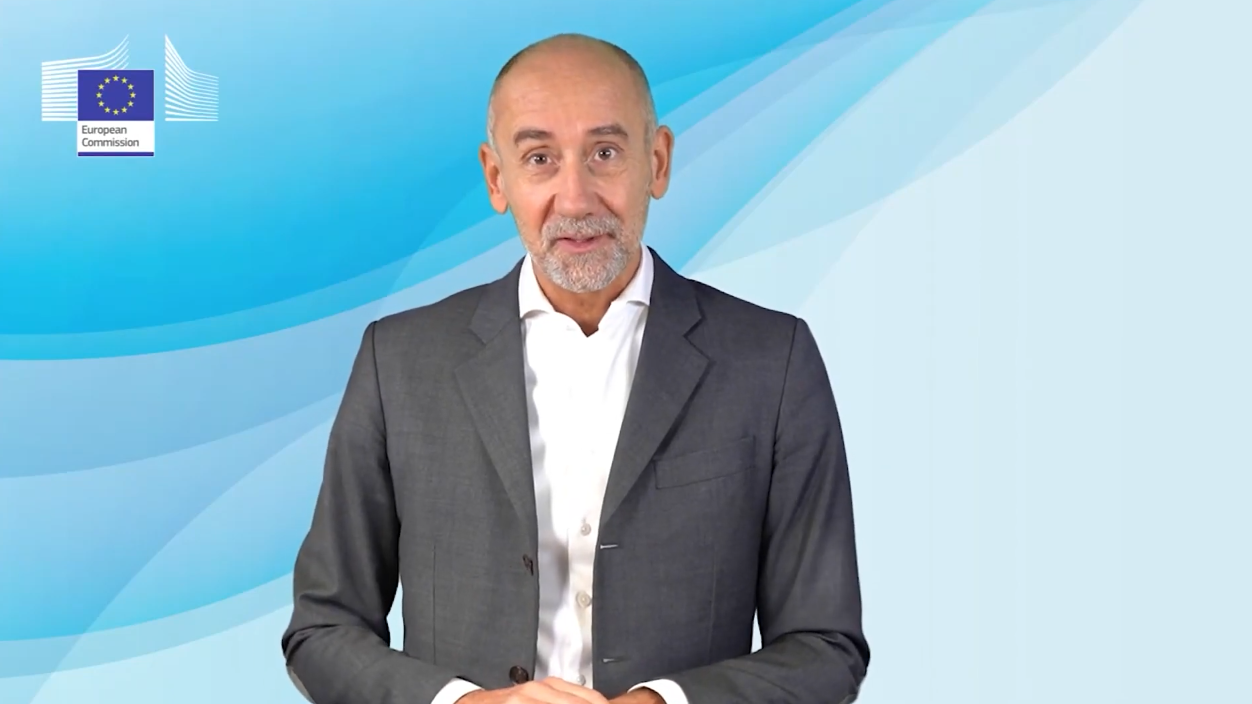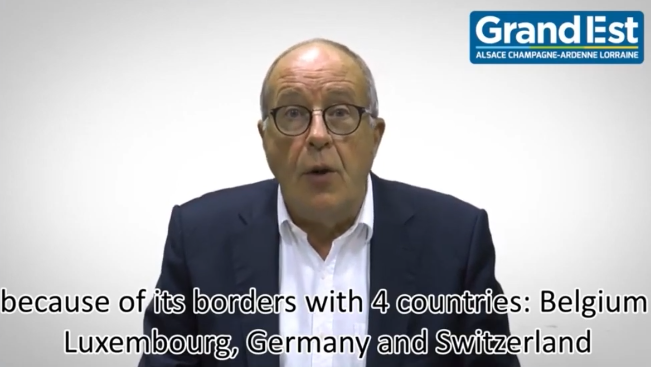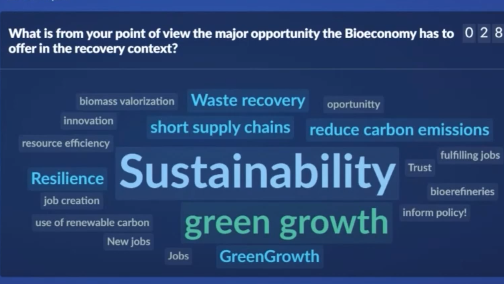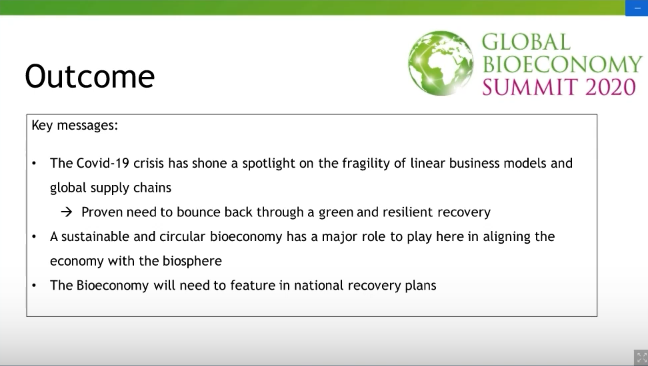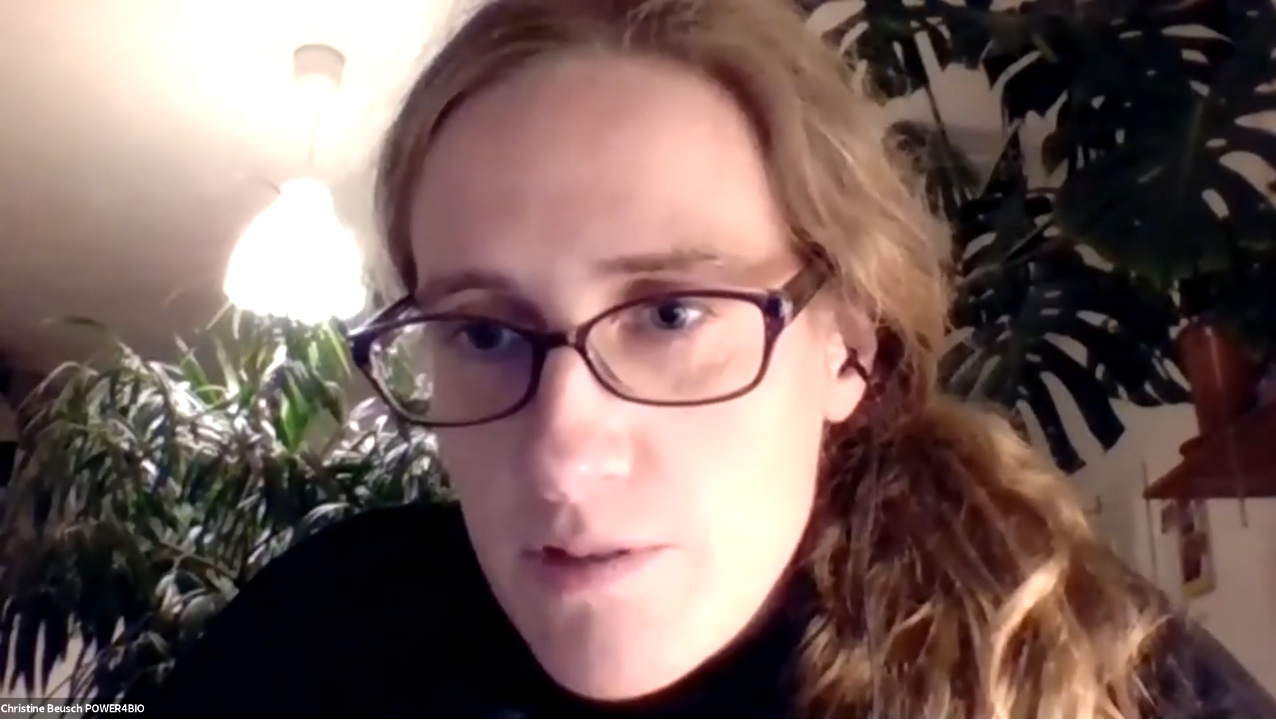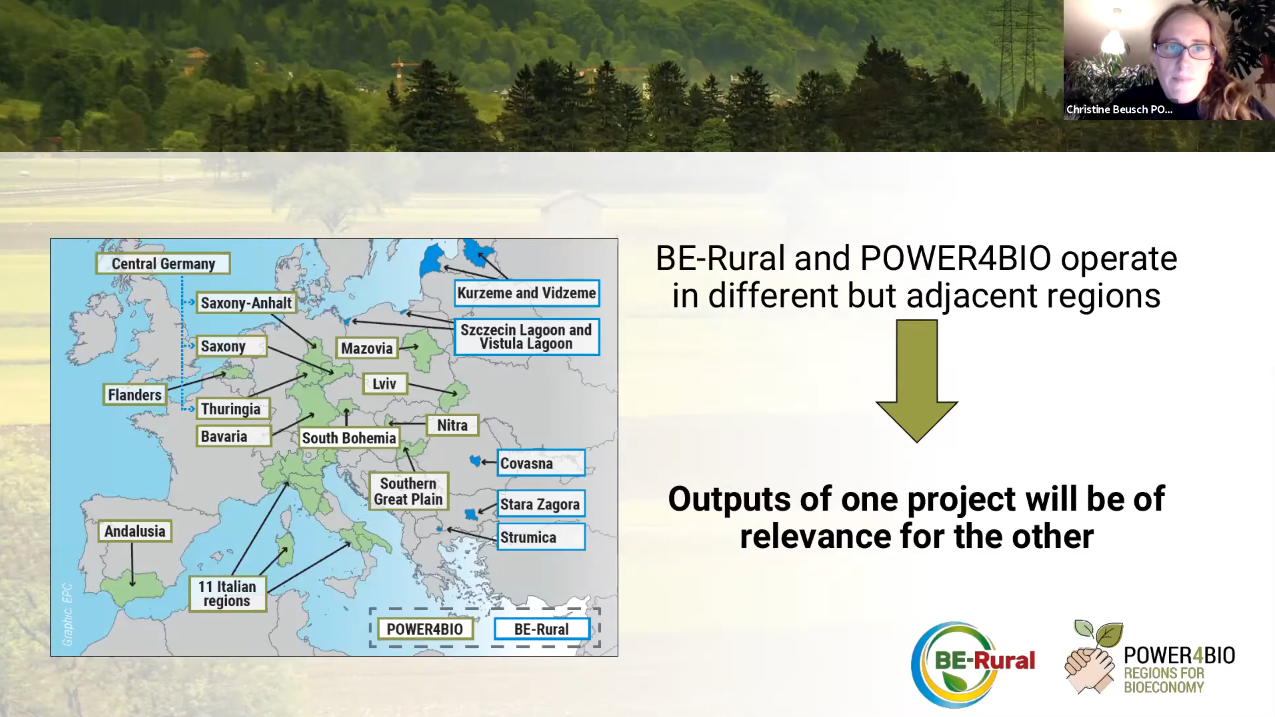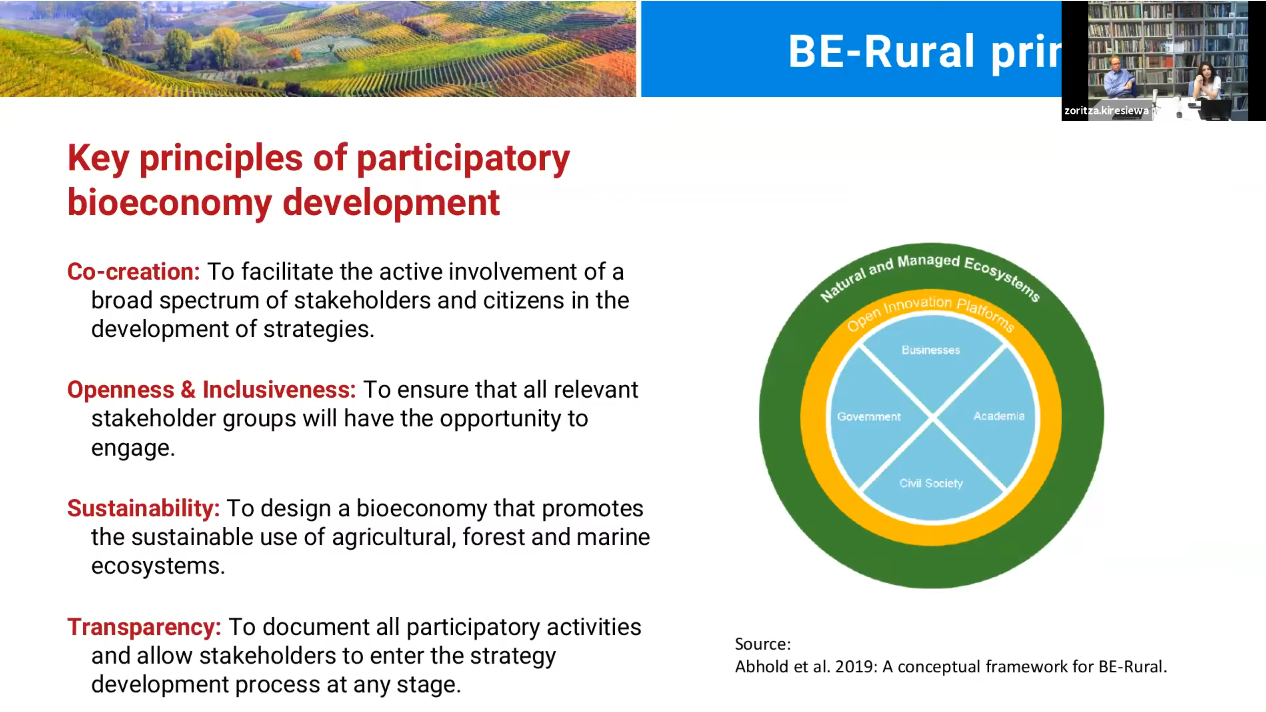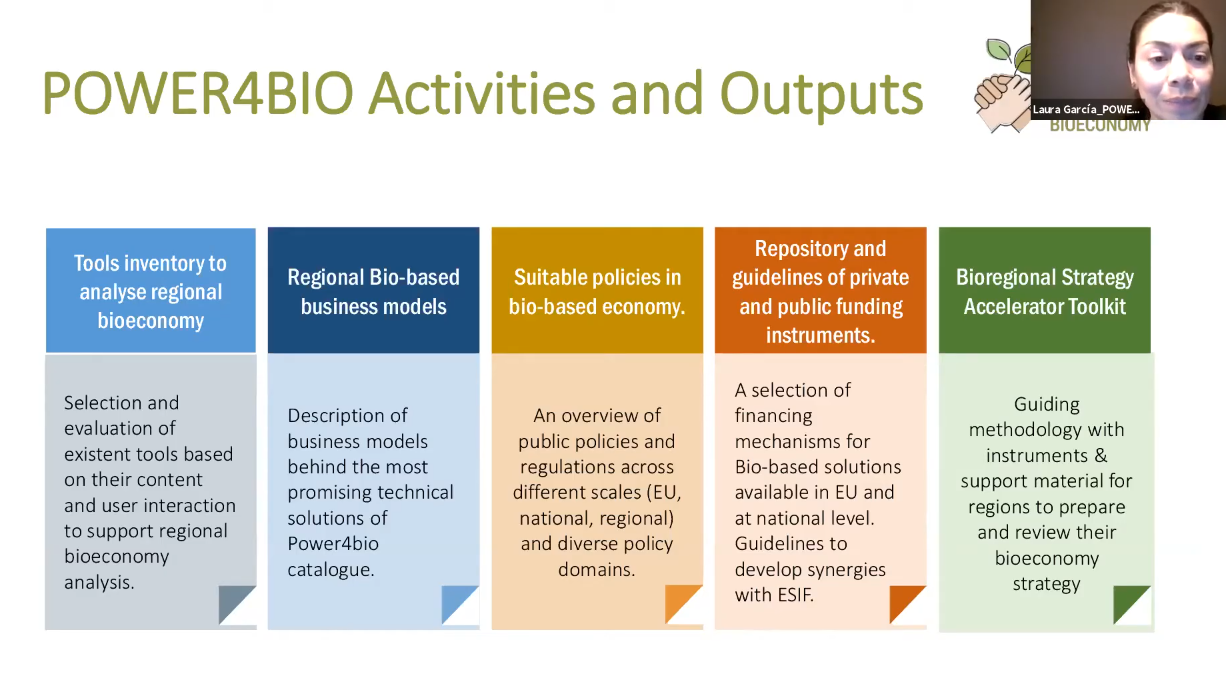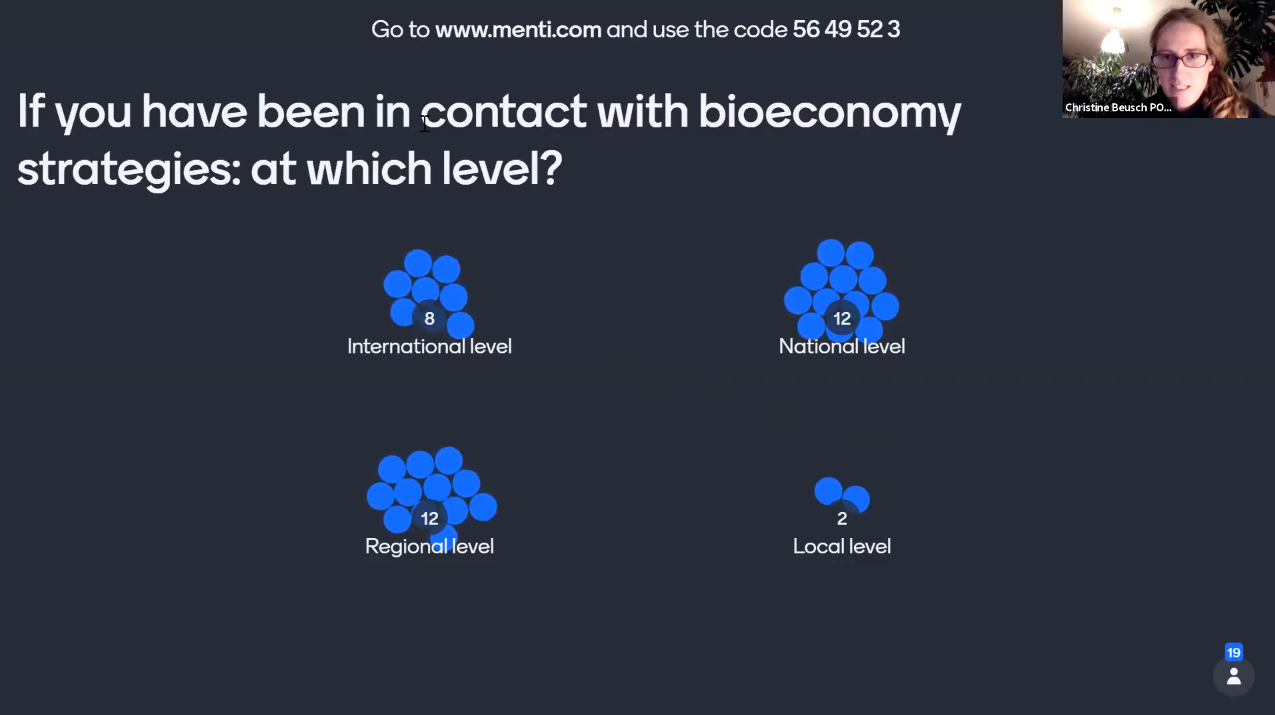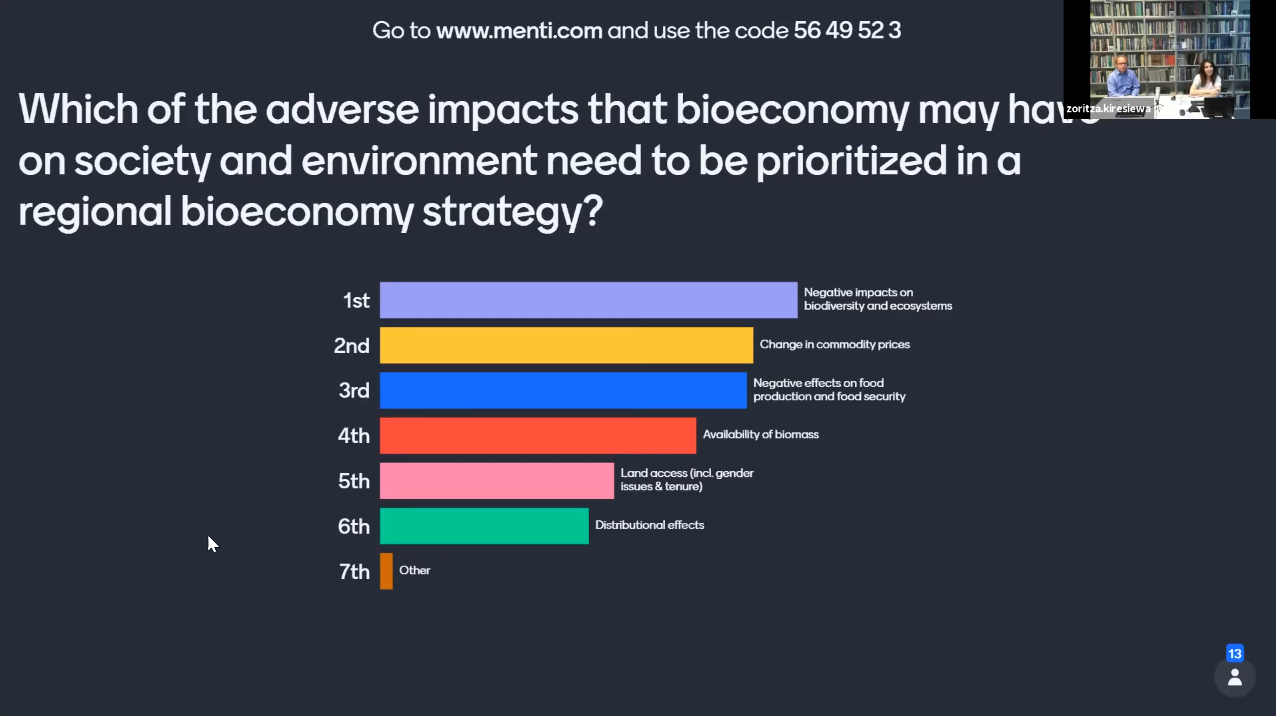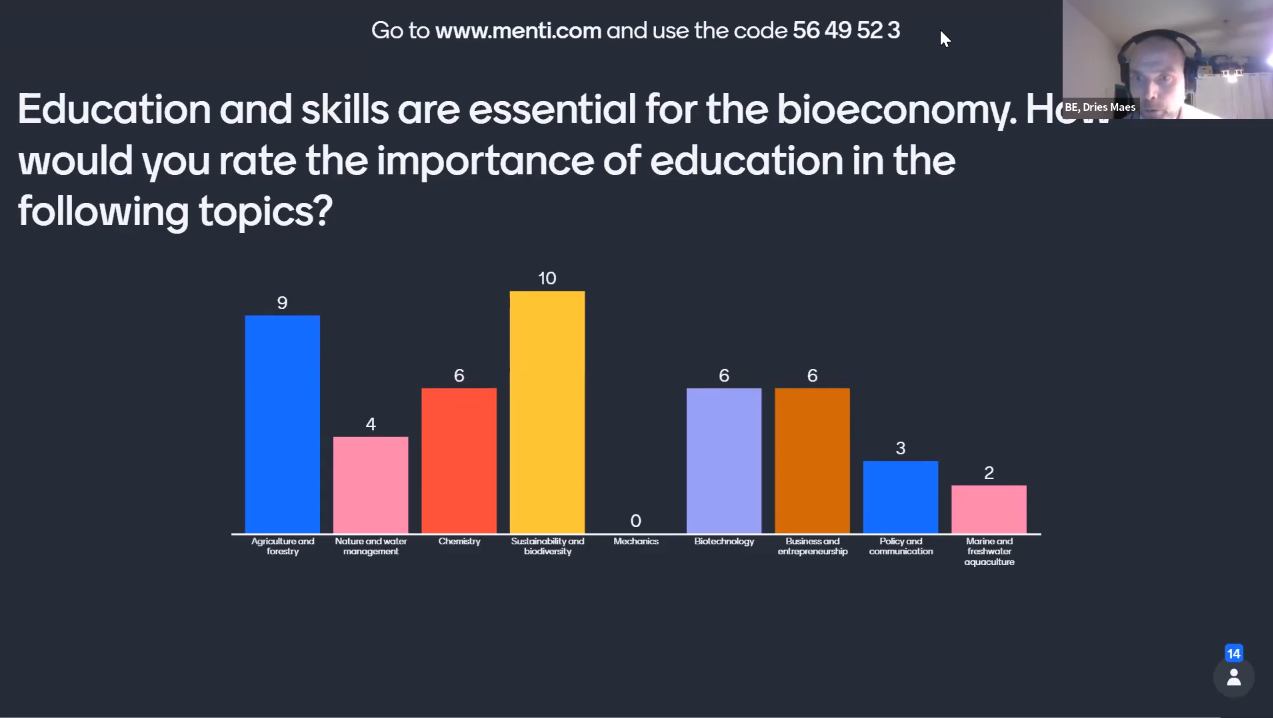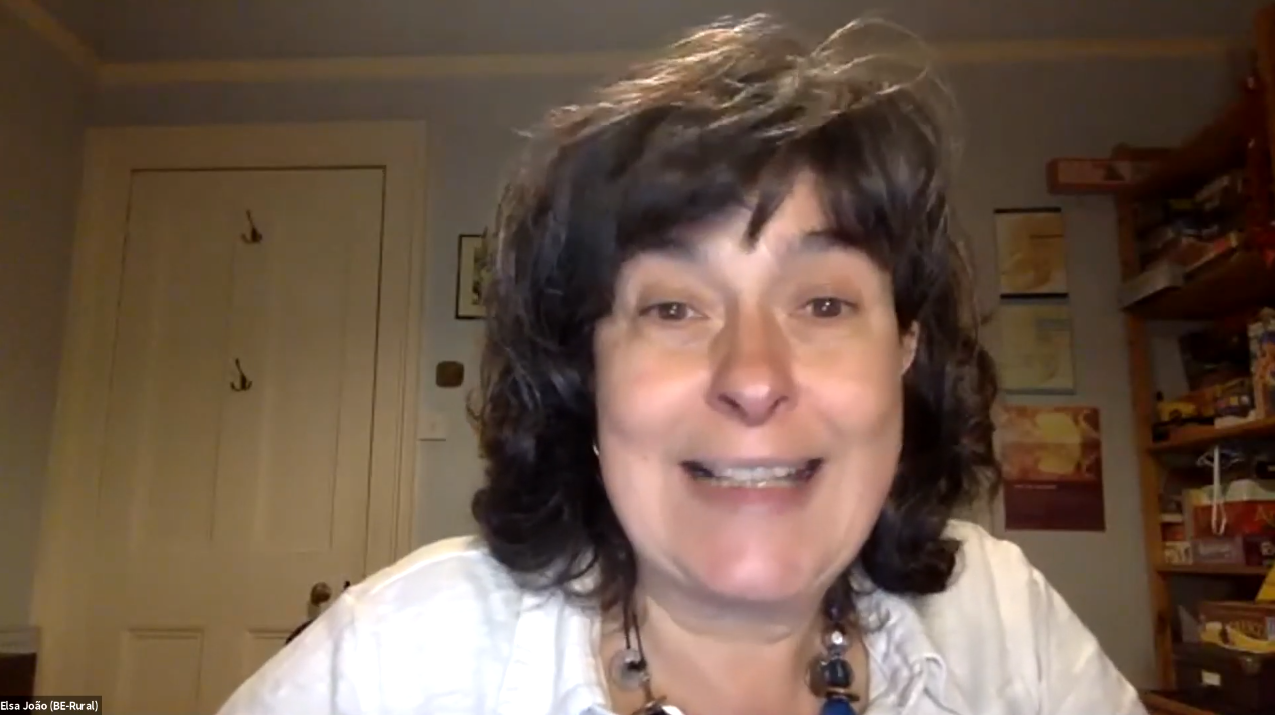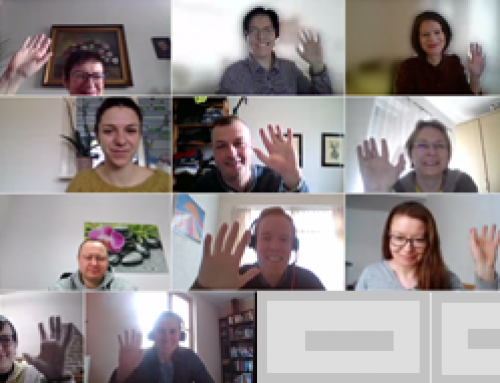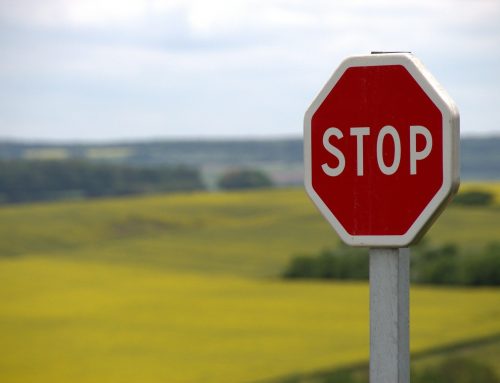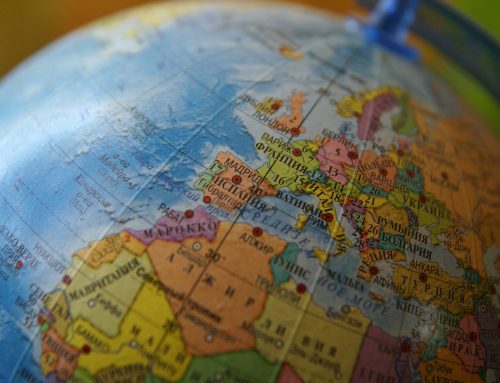POWER4BIO and BE-Rural organised joint breakout session at GBS2020 on regional bioeconomy
November 18, 2020
On November 18, POWER4BIO and BE-Rural co-organised a workshop at the Global Bioeconomy Summit 2020 (GBS2020). The workshop with more than 120 attendees was hosted by the European Commission’s Directorate-General Research & Innovation, Bioeconomy and Food Systems Unit and co-organised by POWER4BIO, BE-Rural, the Region Grand-Est, France, BIOVOICES, BIOEASTsUP and Submariner. Several high-level speakers from all over the world contributed their keynotes to the workshop.
The aim of the workshop was to showcase the opportunities the sustainable and circular bioeconomy can provide to make (local and national) economies more resilient and to stimulate growth for the Covid-19 recovery as well as for the green transition towards a carbon neutral future, through the collection of scalable and actionable bioeconomy solutions from different continents.
You can watch the video recording of the main workshop here.
In four parallel working groups, organised as virtual breakout groups, the participants had the opportunity to contribute to key questions for scalable and actionable bioeconomy solutions. The working groups were on land-based bioeconomy, blue bioeconomy, the role of the bioeconomy in developing countries and, facilitated by POWER4BIO and BE-Rural, bioeconomy at regional level.
Our breakout session with more than 30 participants started with an introduction of both projects given by Christine Beusch and Laura Garcia from POWER4BIO and Zoritza Kiresiewa from BE-Rural. The joint aims of both projects are fostering proactive stakeholder engagement, interregional networking and cross-border exchange of knowledge to facilitate the development of regional bioeconomy strategies and roadmaps. BE-Rural and POWER4BIO operate in different but adjacent regions so that the outputs of one project will be of relevance for the other.
To engage the audience actively in the breakout session, participants were asked for their feedback on various topics via Mentimeter. After a short round of introductory questions we knew that the majority of our participants comes from Europe, is mainly active in academia and in research and development institutes and has mainly been in contact with bioeconomy strategies, with a focus on national and regional level. With this information, we started into a question round that was moderated by various colleagues from BE-Rural and POWER4BIO. The questions were derived from the three guiding questions given by the colleagues of the European Commission, organisers of the main workshop.
How can the bioeconomy contribute to deeply transformative climate action initiatives, such as the European Green Deal?
The European Green Deal aims at reduction of GHG emissions to zero by 2050, economic growth without feedstock depletion and leaving no person or region to its own devices. As the production of power and heat for industry and households contributes the largest human share to GHG emissions, we have asked our participants which specific ‘bioenergy’ transition approach in their opinion would lead to the biggest reduction in GHG emissions in the next decade. Some suggestions were biogas from food waste streams and other waste or residues, pyrolysis oil from forest residues to replace fossil oil and the reduction of reliance of global supply structures. Our colleague Martien van den Oever from POWER4BIO also asked for the hurdles that prevent the improvement of recycling rate for packaging to new and high-quality products and what could be done to overcome these hurdles. As fossil feedstock will be replaced by bio-based feedstock, the pressure will increase the amount of biomass and may deplete soil quality. How can we bring the required nutrients back to the soil in a circular way?
How to address conflicting sustainability objectives (environmental, social and economic trade-offs) in the development of a bioeconomy strategy?
Our colleagues Zoritza Kiresiewa and Holger Gerdes from BE-Rural moderated the second section of the guiding questions of our breakout group. They asked the audience which of the adverse impacts that bioeconomy may have on society and environment need to be prioritised in a regional bioeconomy strategy. The participants could choose from several options, whereas negative impacts on biodiversity and ecosystems was rated as the top priority, followed by negative effects on food production and food security. When asked if there are any good practice examples when it comes to addressing these trade-offs in an effective manner, the audience suggested cross-sectoral strategies like involving different authorities and the elaboration of sustainability rules for the use of biomass, as just developed in the Netherlands. Their last question, are there any good practice examples when it comes to addressing these trade-offs in an effective manner, was discussed controversial. Where some participants answered “impossible!”, others suggested stakeholder involvement from the very beginning and ongoing dialogue, as well as prioritisation to some degree. However, our audience was not too optimistic that consensus can be achieved within a feasible time frame.o or only two votes, respectively.
What are best practices for scalable bioeconomy solutions to make economies more resilient and to stimulate growth for the Covid-19 recovery?
In the last section, our colleague Dries Maes from POWER4BIO asked our audience what the priorities are to attract international partners to develop a regional bioeconomy. Most participants rated official governmental support as the main priority, followed by project financing opportunities and available local cooperatives for biomass provision. In a local scenario, the bioeconomy strategy focuses on local actors and stimulates local creation of new business and new value chain. We asked, what are the priorities to develop a locally embedded bioeconomy cluster? Most participants ranked platforms for collaborations with local partners as most important priority, followed by skilled and trained personnel available in the region. As least important option, access to international markets for products was chosen. Our final question to our audience was about essential education and skills for the bioeconomy. Most participants rated sustainability and biodiversity as the most important topic for bioeconomy education, followed by agriculture and forestry. Education in the field of chemistry, biotechnology and business and entrepreneurship built the second most rated block, whereas education in the topics mechanics and marine and freshwater aquaculture received no or only two votes, respectively.
Our rapporteur, Elsa João from the BE-Rural consortium, closed our joint breakout session with concluding remarks of our discussion. Elsa reflected that in our breakout group, and maybe in the entire Global Bioeconomy Summit, one very important group of stakeholders is missing: the industry. She highlighted the interesting answers to the open questions with a lot of relevant information about bioenergy transition and all the hurdles and the adverse impacts bioeconomy might have on society and environment. Her suggestion how to bring back nutrients to soils is using algae that can be grown on land, for example in artificial tanks, as soil fertiliser. In the end, Elsa highlighted the importance of stakeholder involvement, constant dialogue and communication and knowledge exchange by sharing good practice examples.
You can watch the video recording of the joint POWER4BIO and BE-Rural breakout session on regional bioeconomy here:


